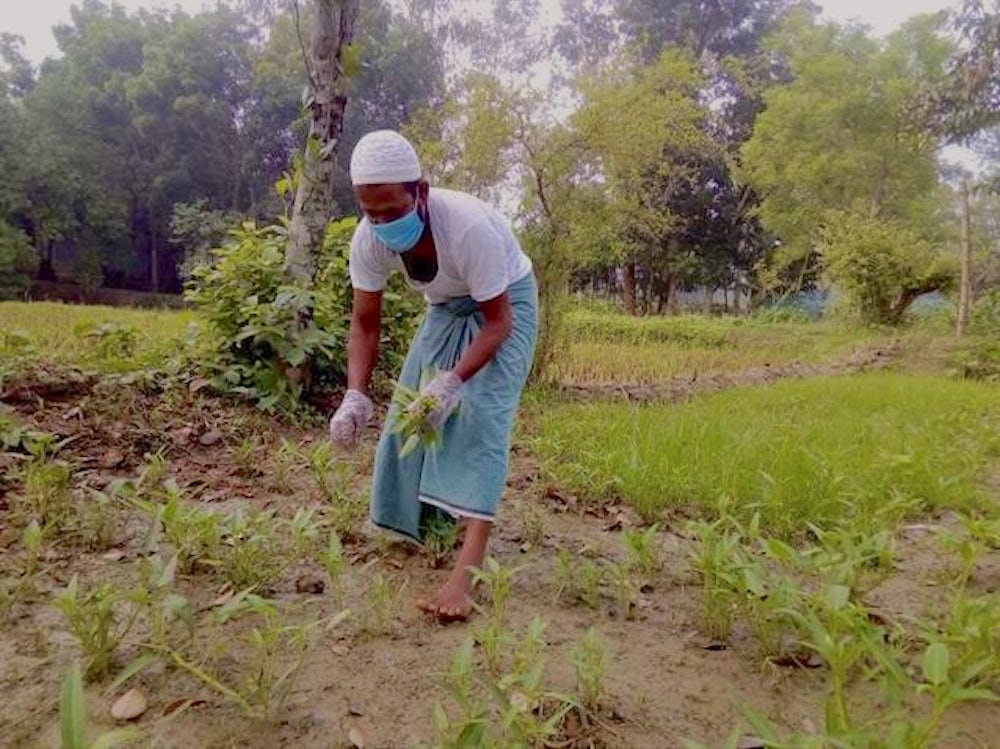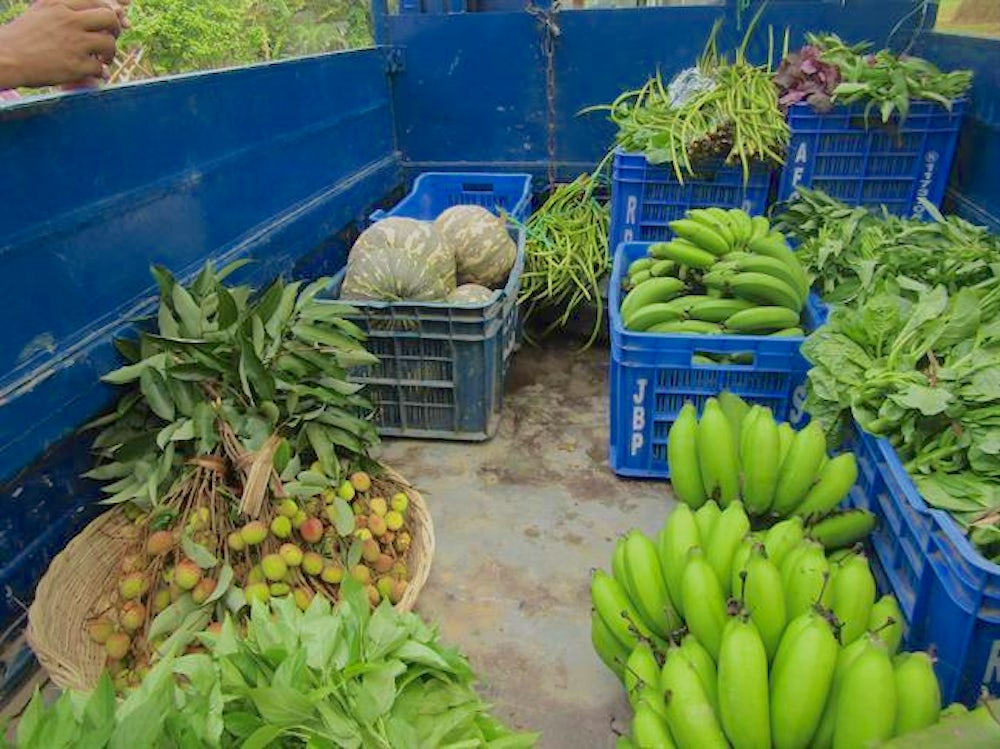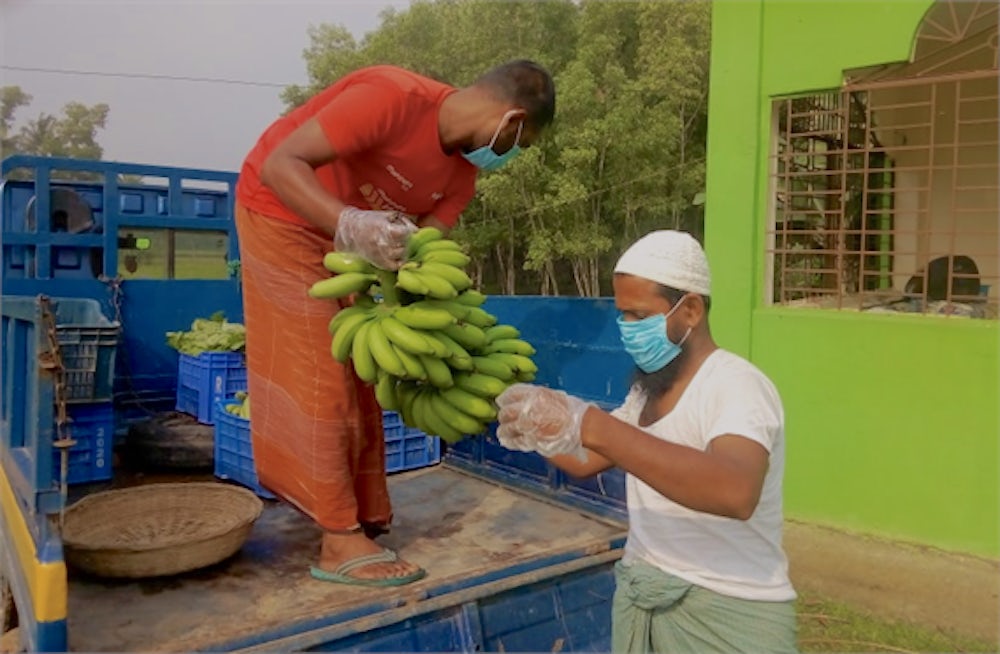An update from Heifer Bangladesh Country Directory Siddiqur Rahman.
When the COVID-19 pandemic reached Bangladesh, the government declared a countrywide lockdown to contain the outbreak. In effect since March 26th, this lockdown has meant that most large traders have stopped purchasing produce from local wholesale markets, leaving rural farmers without a place to sell their crops.

Before the pandemic struck, Heifer farmers in the rural villages of Bogaprotima, Mousa and Boalia produced and sold hefty harvests of bananas, papayas and lemons. Now, following the lockdown, these same farmers are harvesting much less because they have nowhere to sell their crops. Some have been able to market their produce directly to customers but at a major financial loss. Unable to earn a profit, many farmers’ lives and livelihoods were at risk.

Heifer Bangladesh leapt into action to find a solution and gained the attention of a new partner – a local trader that sells vegetables, fruits and other items to outlets in Dhaka, the country’s capital. Originally, this trader offered to pay 15 Heifer Bangladesh farmers a competitive price for their crops including gourds, pumpkins, brinjal, cucumber, cherry tomatoes, spinach, amaranth, jute, arum lobe as well as papayas, bananas and lemons, to be collected once a week.
Dhaka, one of the most densely populated cities in the world, is home to an estimated 21 million people, all of whom need to eat. Since normal markets have been disrupted because of the lockdown, the demand for fresh food has skyrocketed. As a result of this increased demand, the trader immediately requested to purchase more produce from Heifer farmers. Now, he’s buying food twice in a week from nearly 35 farmers each time. The produce is being sold in Dhaka. These farmers are happy to sell out their produce at competitive prices on a regular basis.

Farmer Torikul Islam from Bogaprotima village said, "It is a great opportunity for us to sell our produce from our homes with competitive prices during this crisis of COVID-19,” said Torikul Islam, a farmer from Bogaprotima village. “Before this, we were forced to sell our produce at the lowest prices, or even to let it die in the ground.”
Based on this experience, Heifer Bangladesh plans to establish marketing partnerships and establish hubs where farmers can aggregate produce bound for city markets.
